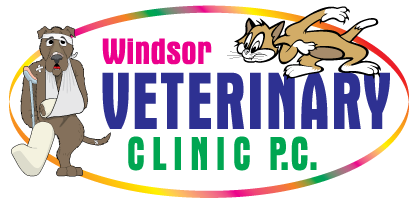Illustrated Articles
-
Therapy pets can help people with many facets of their health including physical, emotional, and psychological well-being. These pets live with their owners and make visits to hospitals and other facilities to spend time with these human patients. Therapy pets are not the same as service animals.
-
Thrombocytopenia is a condition of low blood platelets, resulting in abnormal hemorrhage and possible anemia. There are many causes, including severe or prolonged blood loss, increased internal destruction of platelets, or impaired bone marrow production. Several diseases and medications are also associated with thrombocytopenia. Treatment may require the replacement of platelets along with treatment of the specific underlying cause.
-
Toad poisoning occurs when a dog is exposed to the toxins secreted by certain species of toads. The two most common species of toads that cause poisoning in the United States are the cane or marine toad and the Colorado River or Sonoran desert toad. While there are toads in Canada that secrete toxic substances, their effects are much less severe than the toxins secreted by the cane or Sonoran desert toads. Death can occur quickly and immediate treatment is required.
-
The tonsils are similar to lymph nodes, and the role of both of these structures is to fight infection. There is a pair of tonsils located in small pouches at the back of the throat that enlarge during infection or inflammation. Tonsillitis usually occurs as a result of another disease that affects the mouth or throat. If an underlying source of the infection can be found, it must be treated.
-
Total ear canal ablation and bulla osteotomy (TECA-BO) is a surgery performed to remove the ear canal and a portion of the middle ear. This surgery is performed in cases where the pet is suffering from chronic and unresponsive ear infections. The surgical technique, reasons for performing the procedure, the diagnostic steps, and potential post-op complications are outlined in this handout.
-
The trachea, or windpipe, is the tube connecting the throat to the lungs. Tracheal collapse occurs most frequently in middle-aged to senior dogs (4-14 years), but some younger dogs can also be affected. The most common clinical sign is a persistent, dry, harsh cough, sometimes referred to as a "goose honk". Pets who have surgery for the condition often need medications for life. The prognosis will depend on how well your dog responds to treatment.
-
Transdermal means the application of a medicine or drug through the skin, where it is absorbed into the bloodstream. Relatively few drugs are currently available for transdermal application. The biggest risk with a transdermal medication is that it could be insufficiently absorbed, resulting in inadequate drug levels and treatment. The inside of the outer ear flap (not inside the ear canal) is an excellent area to apply transdermal medications. After you have administered the medication, try to distract your pet from scratching or rubbing the ear for a few minutes by feeding your pet, taking your pet for a walk, or playing together immediately afterward. If your pet is prescribed a transdermal medication patch, your veterinarian will often shave an area to affix the patch.
-
Transmissible venereal tumors (TVTs), often found in genital areas, are spread through contact with other dogs, most often sexual contact. The tumors are usually cauliflower-like in appearance. Diagnosis and treatment is discussed.
-
Your dog has allergies. These instructions have been provided by your veterinary healthcare team to help you treat your dog for his specific allergy. The instructions that relate to your dog are checked.
-
Trifluridine is an antiviral topical medication used to treat viral infections of the eye, such as herpesvirus-1 in cats. Give as directed. Side effects include eye irritation. Do not use in pets with an allergy to this medication. If a negative reaction occurs, please call the veterinary office.


